About Crossroads of Southern Nevada
CrossRoads of Southern Nevada offers detox services in a safe, medically supervised environment for clients seeking treatment. During detox, clients receive various support services, such as therapy and case management, and staff are present 24 hours a day to help clients cope with withdrawal symptoms. Once a client’s system is clean of substances, they can proceed to the next step in their treatment plan.
Residential treatment is a high level of treatment designed for clients with severe disruptive symptoms. Clients reside on site during treatment in a restricted, carefully monitored environment designed to reduce the risk of relapse during treatment. This is a supportive community environment where staff are on hand 24 hours daily to help clients as needed.
The residential program at CrossRoads of Southern Nevada lasts 30 days. During this time, clients work alongside a care team to undergo assessment and participate in treatment, which takes place in individual and group therapy and education settings. Therapy seeks to uncover the roots of addiction and teach supportive coping skills.
Outpatient care typically follows the completion of the residential program, but it can also be used independently by clients considered low risk. During this day program, clients continue to live at home and visit the facility on a fixed schedule to meet with their care providers and engage in group and individual therapy. The outpatient program also provides medication management services as needed.
MAT is the combined use of approved symptom management medicine and therapeutic services. MAT is often used to treat opioid addiction to reduce or eliminate physical cravings. The medical team closely manages MAT to ensure clients’ safety.
CrossRoads of Southern Nevada’s transitional housing program gives clients a safe, sober living space for 60 to 90 days. It’s typically used following inpatient treatment and acts as a stepping stone between the program and a return to fully independent living. The transitional living house is less restrictive than inpatient residential care. Clients in the transitional housing program are also enrolled in outpatient services.
Facility Overview
Latest Reviews
Rehab Score
Gallery
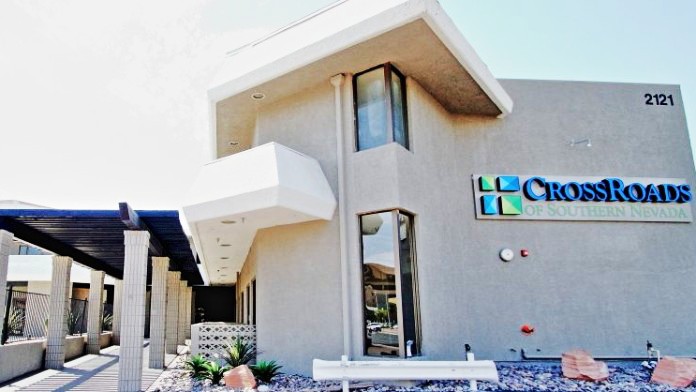
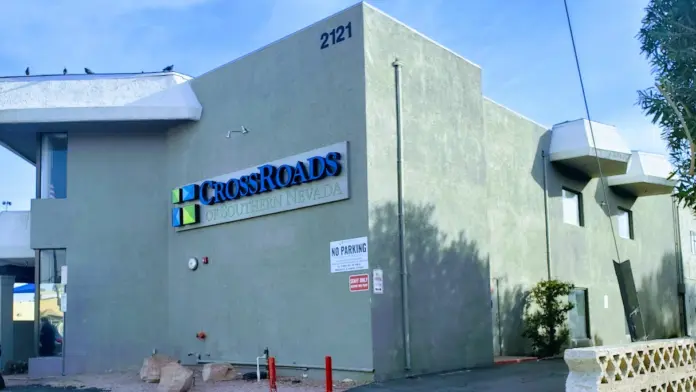
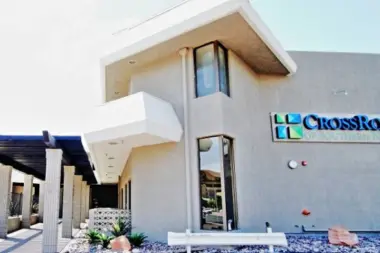
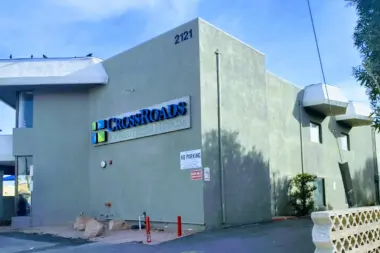
Accepted Insurance
Other Forms of Payment
Self-pay involves paying for treatment out of your own pocket. You can use savings or credit, get a personal loan, or receive help from family and friends to fund your treatment. If you don't have insurance or your insurance plan doesn't cover a specific program, self-pay can help ensure you still get the care you need.
Medicaid is a state based program that helps lower-income individuals and families pay for healthcare. Medicaid covers addiction treatment so those enrolled can use their coverage to pay for rehab. When a program accepts Medicaid the client often pays very little or nothing out of their own pocket.
Medicare is a federal program that provides health insurance for those 65 and older. It also serves people under 65 with chronic and disabling health challenges. To use Medicare for addiction treatment you need to find a program that accepts Medicare and is in network with your plan. Out of pocket costs and preauthorization requirements vary, so always check with your provider.
Military members, veterans, and eligible dependents have access to specific insurance programs that help them get the care they need. TRICARE and VA insurance can help you access low cost or no cost addiction and mental health treatment. Programs that accept military insurance often have targeted treatment focused on the unique challenges military members, veterans, and their families face.
Private insurance refers to any kind of healthcare coverage that isn't from the state or federal government. This includes individual and family plans offered by an employer or purchased from the Insurance Marketplace. Every plan will have different requirements and out of pocket costs so be sure to get the full details before you start treatment.
Addiction Treatments
Levels of Care
Outpatient Programs (OP) are for those seeking mental rehab or drug rehab, but who also stay at home every night. The main difference between outpatient treatment (OP) and intensive outpatient treatment (IOP) lies in the amount of hours the patient spends at the facility. Most of the time an outpatient program is designed for someone who has completed an inpatient stay and is looking to continue their growth in recovery. Outpatient is not meant to be the starting point, it is commonly referred to as aftercare.
Residential treatment programs are those that offer housing and meals in addition to substance abuse treatment. Rehab facilities that offer residential treatment allow patients to focus solely on recovery, in an environment totally separate from their lives. Some rehab centers specialize in short-term residential treatment (a few days to a week or two), while others solely provide treatment on a long-term basis (several weeks to months). Some offer both, and tailor treatment to the patient's individual requirements. Linden Oaks' Residential Stay Program offers additional support for those who may benefit from a structured living environment. A patient's stay may vary from a few days to 30 days ago. The program includes group, family and individual counseling.
Clients receiving services in a rehab aftercare program are typically in the maintenance phase of their recovery, having already completed intensive inpatient treatment. These clients are generally strongly engaged in addiction counseling and recovery-focused life skills training. Case managers and care teams work with clients to identify and access the medical, mental health, and social service programs they need to promote long-term sobriety. Rehab aftercare services often include peer coaching, relapse prevention, and 12 step program induction.
Intensive Outpatient programs are for those who want or need a very structured treatment program but who also wish to live at home and continue with certain responsibilities (such as work or school). IOP substance abuse treatment programs vary in duration and intensity, and certain outpatient rehab centers will offer individualized treatment programs. The Intensive Outpatient Program gives patients the chance to participate in a structured treatment plan part-time while they transition back to home and work or other responsibilities. This program provides half-day treatment (Monday, Wednesday and Friday, 9:15 am to 12:30 pm).
Sober living homes in Nevada provides a place to stay where individuals in recovery have a supportive community to start a new life free from substances. While living in this type of setting, residents agree to abstain from substance use and participate in 12-step programs. Typically, each halfway house has set rules about individual chores, shared living areas, visitor hours, and curfew.
A partial hospitalization program (PHP) provides short-term, intensive rehab for individuals that require intensive care but don't require it 24/7. PHP treatment offers structured programming, often involving a combination of individual and group therapy sessions. Typically, a partial hospitalization program meets for an average of 90 days with sessions taking place 3-5 days a week for a minimum of 20 hours. While some PHP treatment provides on-site accommodation, others allow you to return home.
Ridding your body of alcohol and drugs in a medically supervised environment is known as medically supervised detox. During this period of inpatient care, you are monitored by a team of medical professionals whose job it is to help keep you as safe and comfortable as possible while addressing any withdrawal symptoms. Medically supervised detox is typically the first step in the recovery process, and usually takes an average of 5-7 days.
Treatments
When a person is unable to control their drinking despite negative effects in their life, they are experiencing alcoholism (alcohol use disorder). Recovering from alcohol addiction typically requires professional intervention such as alcohol rehab in Nevada. This may occur in a residential program, intensive outpatient program, partial hospitalization program, or support groups. Recovery typically begins with detox and continues long after rehab with ongoing supports.
When you enter drug rehab in Nevada, you receive professional assistance to remove drugs from your body and cease your body's need for the substance. You learn coping strategies and receive support to prevent relapse and enjoy long-term sobriety.
Specialized substance abuse treatment in Nevada can support individuals who need help for substance abuse. Care levels include outpatient, inpatient, and partial hospitalization programs. By incorporating evidence-based therapies such as cognitive-behavioral therapy (CBT), dialectical behavior therapy (DBT), counseling, clinicians can help you to get to the root cause of your addiction and equip you with the tools to maintain your recovery.
In Nevada, dual-diagnosis addiction treatment programs provide integrated care for individuals with co-occurring substance use disorders and mental health conditions. Outpatient and inpatient programs generally include individual and group therapy, recovery support groups, dialectical behavioral therapy, trauma-informed care, and skills workshops to treat both disorders successfully. Dual-diagnosis treatment can improve long-term recovery success and improve mental health, making your life and sobriety more manageable.
Programs
Adult rehab programs include therapies tailored to each client's specific needs, goals, and recovery progress. They are tailored to the specific challenges adult clients may face, including family and work pressures and commitments. From inpatient and residential treatment to various levels of outpatient services, there are many options available. Some facilities also help adults work through co-occurring conditions, like anxiety, that can accompany addiction.
Serving in the military is both mentally and physically challenging, and can result in trauma that persists even after combat ends. Military programs are tailored to the specific and often complex needs of active duty personnel, veterans, and military families. Clients often access these programs through the U.S. Department of Veterans Affairs (VA).
Clinical Services
Substance abuse counselors may apply cognitive behavioral therapy in Nevada during individual, family, or group sessions. Using a goal oriented approach, the therapist will help participants change negative thinking and behavioral patterns to address substance use and related challenges.
If you're experiencing substance use disorder, dialectical behavior therapy in Nevada can help you reduce cravings, learn healthier ways to manage stress, and avoid situations that can lead to substance abuse. Treatment includes one on one sessions with your therapist as well as group sessions to practice the skills you're learning.
Group therapy opportunities in Nevada allow you to see how successful recovery behaviors are modeled by your peers. You learn conflict resolution skills and are empowered to recognize your strengths and overcome your addiction.
Individual therapy provides you with a confidential setting to explore the complex factors that contribute to drug and alcohol addiction. Your therapist can provide tailored support and help you develop healthy coping strategies, improve self control, and build a foundation for sustainable sobriety.
Research shows that motivational interviewing is an effective approach for individuals who are unprepared for change. They may be resistant to change or simply insecure in their abilities to make changes. This therapeutic method allows clients to explore their options, reach their own conclusions, and feel empowered to make changes.
Trauma therapy uses trauma focused care to help you understand and manage your emotional and physical responses. Using therapeutic interventions, you learn to reframe the experience. This helps to reduce your anxiety and build your resilience to face future challenges and gain control over your life.
Sessions for couples therapy may involve joint meetings with the counselor as well as individual sessions. Between sessions, both partners are asked to do "homework," which involves practicing the insights and behaviors they learned about during therapy.
During family therapy sessions, your therapist facilitates discussions that help members of the family unit understand addiction and how it affects the entire family, providing you with coping strategies that help to strengthen the family unit.
A diet packed with nutrients is crucial for combatting addiction. The right foods give you the energy you need for success in therapy and daily tasks. Nutrition therapy during rehab will help you get these nutrients and learn how to follow a healthy dietary plan long term.
Using recreational therapy in a holistic addiction treatment program allows you to find joy and purpose within healthy activities. You might engage in group games, arts and crafts, and fitness programs that promote relaxation and physical health. These are essential for long term recovery.
Amenities
-
Residential Setting
-
Private Rooms
Staff & Accreditations
Staff

Kevin Morss
CEO

Jennifer Morss
COO
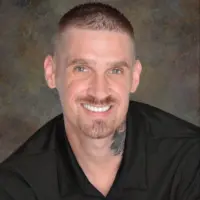
Paul Vautrinot
VP of of Programs

James June
Program Director
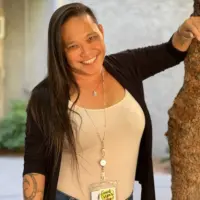
Billie Patinio
Manager of Operations
Accreditations

The Joint Commission, formerly known as JCAHO, is a nonprofit organization that accredits rehab organizations and programs. Founded in 1951, the Joint Commision's mission is to improve the quality of patient care and demonstrating the quality of patient care.
Joint Commission Accreditation: Yes
Contact Information
2121 W Charleston Blvd
Las Vegas, NV 89102





